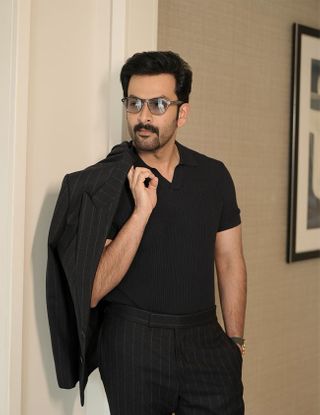
Aamir Movie Review
If you are one of those super-selective moviegoers who watches only three films a year then make sure "Aamir" figures on your list.
This is by far one of the finest attempts in recent times to explore the psyche of a modern 'foreign-returned' Indian as he's plunged headlong into the Kafkaesque nightmare of crime, grime, extremism and fanaticism in the underbelly of the big, bright and bewildering city of Mumbai. It is a "Swades" on skids, hurtling down into an abyss of unpatriotic instigations.
From the moment Aamir (Rajeev Khandelwal) touches down on Mumbai's international airport, what assails you is that overpowering sense of an individual's struggle to survive in a pitiless and often unforgiving city.
That debutant director Rajkumar Gupta is able to muster a fair amount of smiles and chuckles in this tale of one day in the life of a man caught in a nightmare that even Franz Kafka would have fond hard to create, let alone condone, is entirely providential.
"Aamir" could've easily slipped into being a heavy-handed polemical study of the isolation and persecution of the Indian muslim and his constant battle to remain part of the mainstream even as he's provoked and instigated from both ends to keel over and surrender to the forces of chaos, anarchy and annihilation.
Ironically, a work of art like "Aamir" embraces the chaos to create a universe that is in a strange way the opposite of destruction.
Persistently, "Aamir" repeatedly invokes images of ominous doom as we see the protagonist wind his way through a dreadful day that would end in abject tragedy.
The taut and tense narration finds supreme sustenance from its outdoors. Indeed, apart from Rajeev and his portrayal of the reluctant hero, the real protagonist of "Aamir" is Mumbai.
The crowded, congested 'chawls' and 'gullies', the reek of deprivation, and the stench and sweat of anxiety assail your senses in a way that we last saw in Anurag Kashyap's "Black Friday".
Squalor seldom seemed so splendidly evocative. As the protagonist winds his way through a day in the city that would lead to his inevitable doom, the camera captures crowds of bored bystanders and curious passersby looking at our man on the run with a tell-tale red briefcase in his sweaty hands.
First-time cinematographer Alphons Roy has done to Mumbai what most movies set in the city have not. He has made Mumbai at once the perpetrator and victim of a socio-political perversity that goes beyond crime and punishment.
Editor Aarti Bajaj cuts the film with a ruthlessness that echoes the film's subliminal mood. There's no room in the narration for question marks. Every shot is punctuated by an exclamation mark, every moment means a move forward to an unknown destination. Every glance on the road seems to suggest danger. Every peep is a peril. It's an amazingly constructed labyrinth of crime and commitment.
The narrative harnesses faces on the streets with the expertise of an unrehearsed trapeze artiste's walk across a ragged rope. There's very little to keep the plot from going over the precipice. And yet director Raj Kumar Gupta pulls it off with a full-throttle drama that leaves us gasping for breath.
Indeed, we've never seen a screen hero run so fast and so relentlessly. Rajeev chases fugitive taxis and petty criminals through highways and which stretch into acres of aching squalor. Physically and emotional taxing, the role gives Rajeev a chance to make the kind of debut actors dream about in their worst nightmare.
The debutant doesn't let go of his character for even a split second. From those skilful long-shots of him running on the highways to those tight close-ups expressing hurt, anger, anguish, desperation and occasional gratitude (watch him when the prostitute helps him out or towards the finale on the bus when looking out of the window he thinks his ordeal has ended) Rajeev knows his job thoroughly.
There are hoards of smaller actors, like Gajraj Rao barking<



















